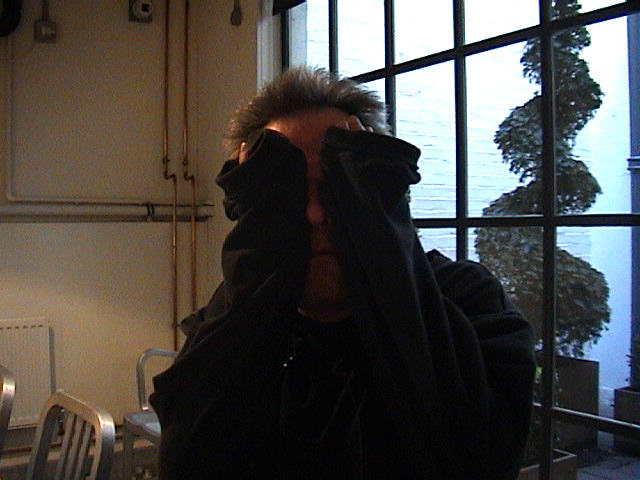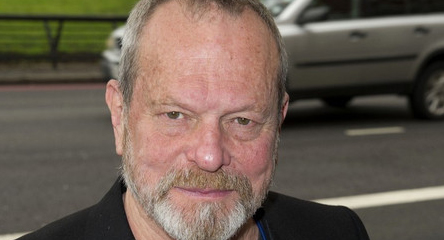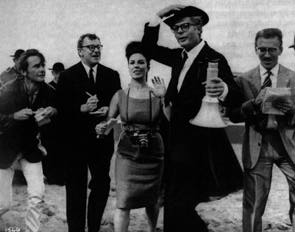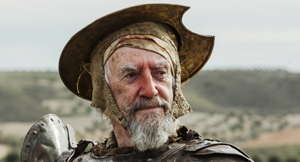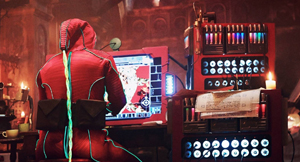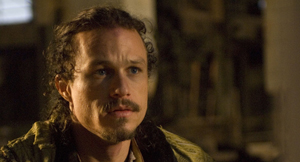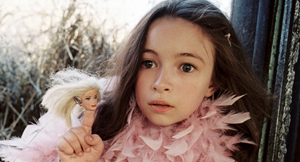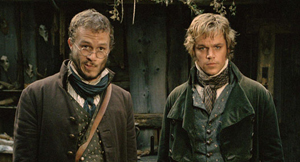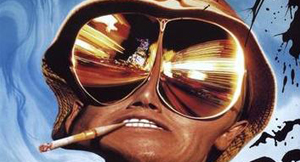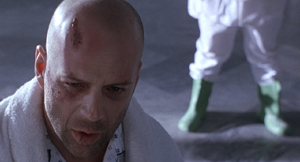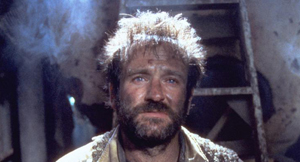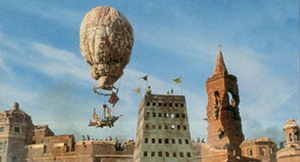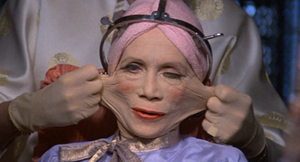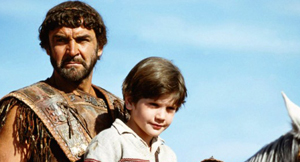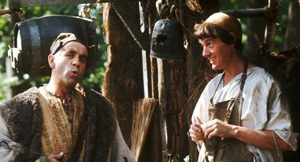Tony Grisoni talks to Phil Stubbs about writing the Quixote screenplay with Terry Gilliam
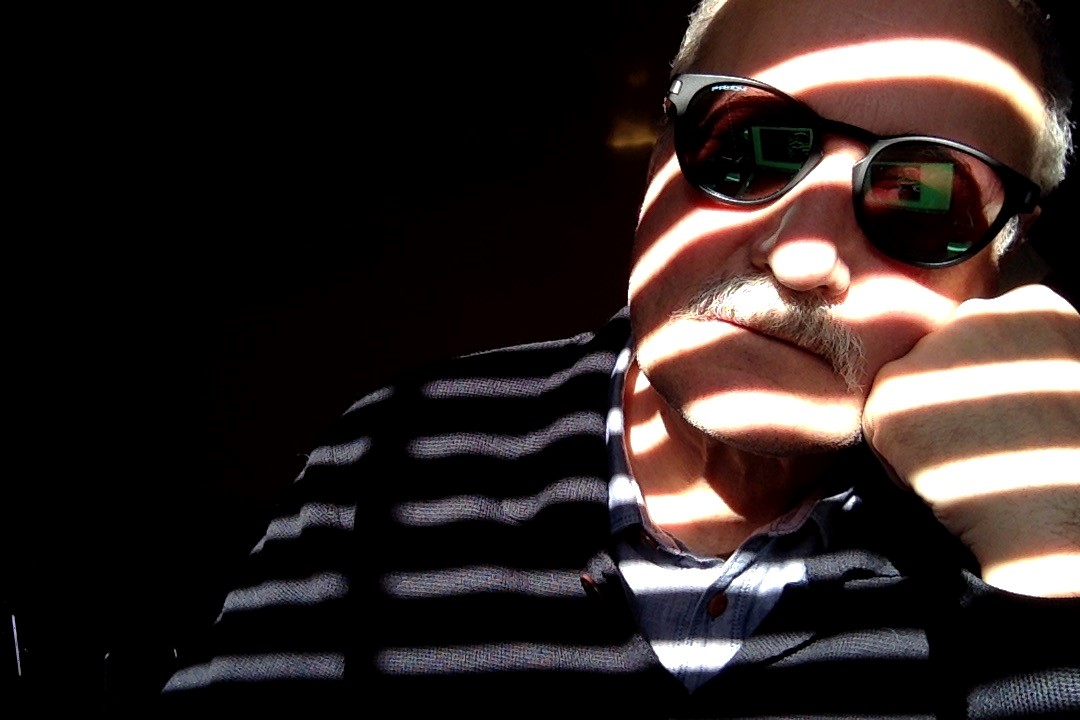
SPOILER WARNING: reveals information about some of the script’s themes and about a character’s transformation that happens gradually throughout the film. Information is given about early plot elements, but no plot details are given about the end of the film.
Tony Grisoni has collaborated on a number of projects with Terry Gilliam. The pair wrote the script for Fear & Loathing in Las Vegas (1998), and then The Man Who Killed Don Quixote. Grisoni and Gilliam performed a rewrite of Ehren Kruger’s script for The Brothers Grimm (2005) and wrote the script for Tideland (also 2005), based on Mitch Cullin’s novel. The pair also worked on scripts for Neil Gaiman and Terry Pratchett’s novel Good Omens and a project called The Minotaur, although neither of these scripts went into production.
Grisoni’s other feature films as screenwriter include Queen of Hearts (1989) directed by Jon Amiel, In This World (2002) directed by Michael Winterbottom, and Brothers of the Head (2005). In This World won the Golden Bear at the Berlin Film Festival. He also collaborated with Samantha Morton, writing the script for her directorial debut The Unloved (2009).
The writer has also had considerable success in television, with credits including the outstanding Red Riding trilogy (2009) featuring Andrew Garfield, and the acclaimed Southcliffe (2013). His script for The City & The City, based on the novel by China Mieville, screened on BBC2 in 2018.
Grisoni was executive producer and wrote two episodes of The Young Pope (2016 – ), and penned Crazy Diamond (2017), the Steve Buscemi episode of Channel 4’s anthology series Philip K. Dick’s Electric Dreams.
The writer spoke with Philip Stubbs about his work with Terry Gilliam on The Man Who Killed Don Quixote in July 2017, just after principal photography had completed.
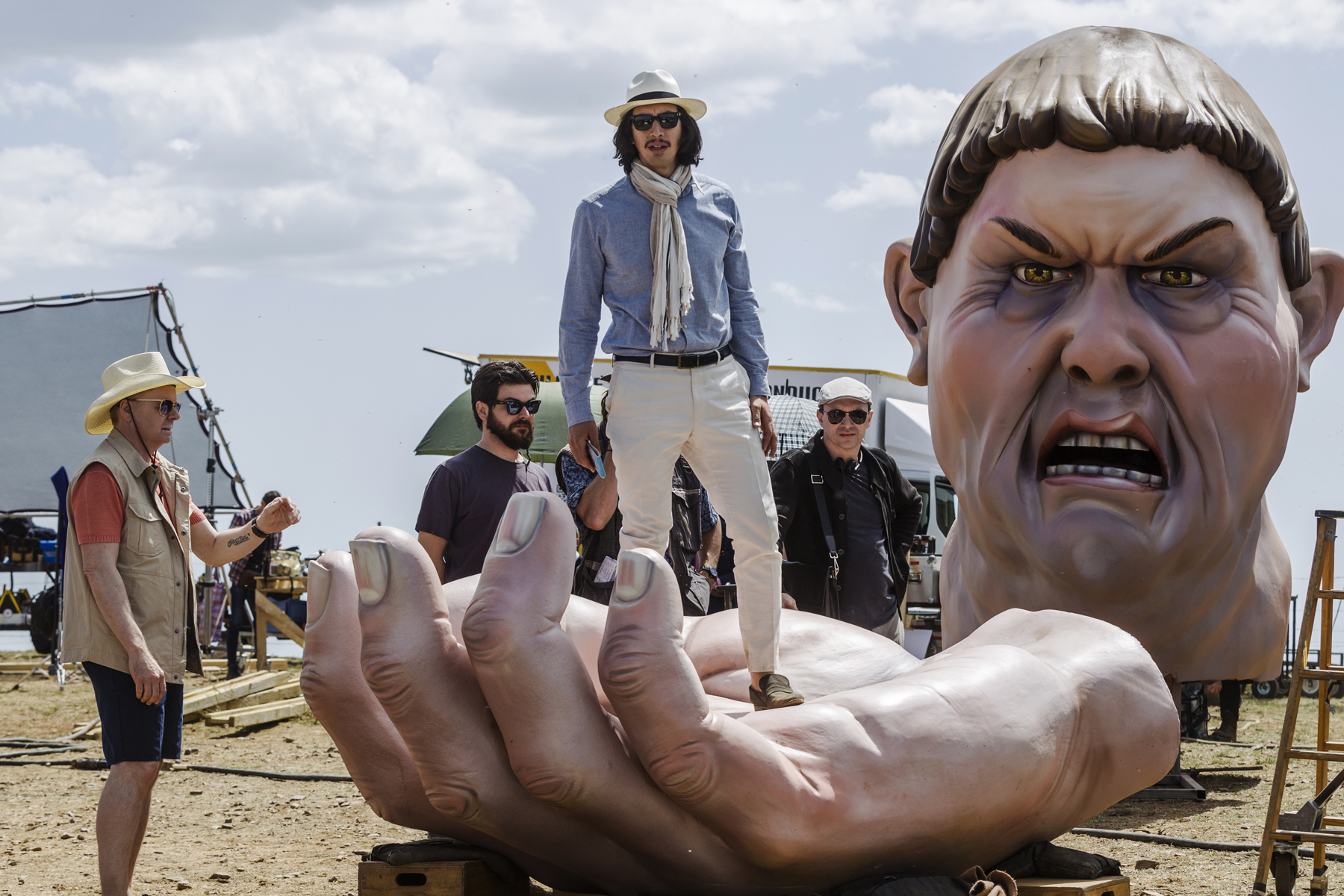
Philip Stubbs: Once Fear & Loathing had completed photography, there was a frantic postproduction. During the publicity for the picture in 1998, I remember that Terry said he’d been too tired to start anything else. I think it was towards the end of 1998 that he kicked off the Quixote project with you.
Tony Grisoni: People remember Fear and Loathing very fondly, but what they forget is that, when it premiered at Cannes in 1998, it was a total disaster. I think that almost every trade publication trashed us. As a result, that had a huge effect on the distribution of the film. It was seen as being a failure. After going through the blood, sweat and tears that you shed to make the film, you can imagine how tough that must have been for Terry to have faced – guess what, this film is no good. Yet, over the years, students and schoolkids have made it a huge success, because it became the Friday night video.
It was a big seller in Walmart!
Yes, huge. It became a very big home video seller, and then the movie became known as a great success. But at the time of its theatrical release, that was not how it was seen. The great and the good in the critical world saw it as trash. It was hard thing to take at the time.
So around 1998 he started talking about Quixote. He had a script from years before that he’d written with Charles McKeown. So we were having these conversations. Terry said, “I want to do something about this advertising executive. He’s really arrogant – he thinks he knows everything. He gets dragged into Quixote’s world. He goes back in time and he becomes Quixote’s sidekick.” Terry was talking about this, and I said, “But it’s not written down.” Terry then said, “It’s all in my head.” It sounded like a weird fusion of Don Quixote and A Connecticut Yankee at King Arthur’s Court by Mark Twain.
In fact Terry had spent six months working on Mark Twain’s novel just after The Fisher King
I didn’t know that! So that’s where Terry stole it… now we know! In fact, this particular advertising executive, Toby, did bang his head, go back in time and meet Quixote. In the first drafts that we did together, it was split between the contemporary world – this advertising man making commercials, having betrayed any creative truth that he had, selling out to make commercials to flog cat food or whatever… He gets a bang on the head, and goes back to meet the real Don Quixote and then learns to become a servant to this crazed man. That was very much the early drafts. That balance and how you went into the Quixote world changed a lot, there was a moment I remember where he slipped into the contemporary world for a bit before being plunged back into the past. It very much played with that play between past and present.
In the middle of a previous script, he woke up in a hospital before going back to the world of Quixote.
Yes, in one draft he woke up in a hospital. There were many different drafts, versions of this.
Casting your mind back to 1998, early 1999, when you put that script together, what can you remember about the roles you played?
I’ve never worked with Terry where anything was distinct at all. Part of the joy is that it is play. What you have to do is to jump in and play. And it is hard play – you do it for a long time. I remember we’d act out scenes in a very natural way. We didn’t stand on a stage performing, but we’d just go through scenes and play different roles. Then we’d swap the roles we played.
By doing this, we understood the sense of the scene, the timing and how the jokes work. We would do that kind of thing, and I would go away with the material. I’d write and then send to him and then we’d meet up again and go over the script – that’s what we do.
Meanwhile Terry would say, “I had a go. I had a look at that scene and I’ve got a new version here,” and Terry would often say things like, “I managed to destroy the work that you did!” Joking aside, sometimes he has! But I say: well you’d better send it to me then. Toss the ball back. Then I have a look at it, and of course he hasn’t destroyed it totally, the destruction always brings a new idea or a new twist or an interesting take on something, or a new element. Then I incorporate that. We talk, we read the script, we have new ideas. I make sure I’ve got many notes, so I could go away and piece it together and do the writing and then come back and do some more. So it’s a very fluid process. (continues below image)
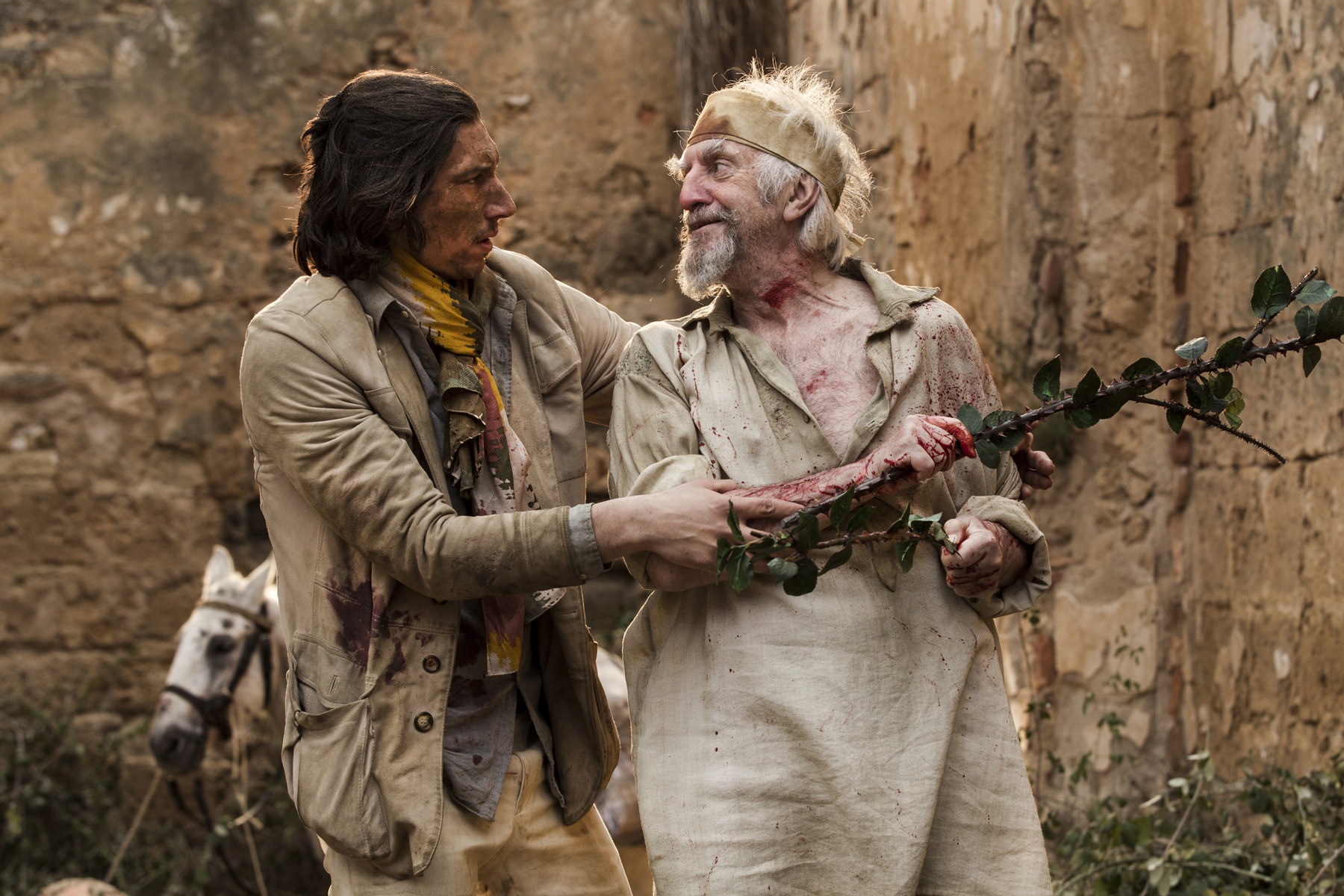
When it comes to putting a script together, the skills you bring in and complement each other, is there something that Terry specifically needs you for?
I know that everyone likes the image of Terry being a crazed, out-of-control madman. But he’s not – he’s actually very disciplined. You can’t make a film unless you are disciplined. His take on a script is very, very good. He’s got a very good eye for a script. He understands structure of a script.
I’m in love with structure because I think structure is everything when it comes to a screenplay. It’s all about juxtaposition, it’s all about the transition from one scene to the next scene, and the meaning is in the middle, in that juxtaposition.
The film will be shot to shot to shot. The joy is the same in the script, going from one sequence to another. So to be really blunt about it, if you’ve got a really sad scene, you really want to come in with a very funny scene. The closer you put beauty and horror together, the better the horror works and the better the beauty works. The closer you put funny next to sad, the better the funny works and the better the sad works.
The other thing is that I used to be scared of writing dialogue. These days I really enjoy it. The biggest demon in dialogue is exposition of course. One of the biggest problems is the number of notes I get saying “Can we make it clearer?” In other words: can we tell everyone what’s happening? That implies that the executive understands, but he or she is worried the mass audience won’t.
The best dialogue you write is never about the plot. The best dialogue you write is about something else. The opposite of what’s happening. I enjoy writing that stuff very much.
Terry is a very visual filmmaker. Of course he is. But he’s also a chatterbox. He does a very funny thing with some dialogue: sometimes he’ll start talking non-stop. It’s very funny, very stream of consciousness, and it is great is to integrate stuff like that. I see the script as being my responsibility, that’s what I do. I’m the screenwriter. I want to pull everything back to me, write it and set it down.
This method makes him free to come up with ideas, to write something which is freed of the rigours of the framework of the screenplay, which we can then go over and explore. I can then try and integrate it all so that it works.
That addresses my next question: why does Terry need a collaborator on the screenplay? Because it leaves him freer to invent, when he has a collaborator to work with him?
Well, I think that’s a really interesting point. I think what you are describing is the bigger business of filmmaking. A mentor of mine, the great producer – Tony Garnett – refers to filmmaking as being a social act, which it is of course. This isn’t just paying lip service like a great award ceremony where people say what a collaborative art it is – before they then take the gong…
The point is that it is an actual description of the business of filmmaking. It is a social act, and if I am writing a screenplay on my own – do I need a collaborator? Of course I do. It tends to be a producer whom I trust, whose notes are part of an ongoing conversation which is not just for that one film. Does Nicola Pecorini do his cinematography all on his own? Does a designer, a sound mixer, and actor?
No – none of us do what we do on our own. And we really are only as good as the people we are working with. And that applies to directing and screenwriting too. It’s about the dynamic between us all the time. It doesn’t need to be a fixed thing: one person can play the sensible one and the other person can be the irresponsible one. Then you can switch over – you can be free about how you play. It is about dynamic – you can’t have the same roles, because that’s when you don’t get anything interesting. So you need to challenge, offer up an alternative. It’s a debate. Does that sound too dull for you?
No, it’s fascinating insight!
The way I work with Terry is unique – totally different from any other way I work. I think what you say about him writing with a screenwriter, partly yes there are many instances where he can be freed because – guess what – my main responsibility is the screenplay, that’s my job. But it’s not the only way it works. I might come up with an idea which is a bit off-piste, to which Terry might respond that it doesn’t really fit. We argue it out. He might have the final say – it’s his brand – but I will still argue. He enjoys a fight – as you may have noticed. The important thing is fluidity. You don’t stop.
Terry has said himself the two things you need to get films made is momentum and belief. If he had enough knuckles he’d have them tattooed on his knuckles! Those are the two things, the two requirements. That’s all to do with playing. And by playing you avoid the demon of fear.
Momentum and belief is what gets movies into production without full financing!
Absolutely, and it’s also increasingly necessary. I can’t remember the last time I went into production on a feature film with a contract all signed and sealed. There’s always something slightly outstanding isn’t there? I think that’s one of the reasons we’re all moving to television. (continues below image)
There was a 1999 attempt to make the film that fell apart, but shooting started in the autumn of 2000. How happy were you with that script going into production?
Then, I was very happy. With hindsight, I am not. The first thing is that anything that you wrote a day ago just doesn’t look as good. Anything, let alone something that’s from 17 years ago. At the time you think it’s something of complete genius. And then it doesn’t seem to be quite so genius a week later. You gain a certain objectivity, hopefully you get better. You have new ideas, new ways of putting something together. And after 17 years, you’re not the same person. It’s a very natural thing. Yet at the time, I thought it absolutely felt just great to be getting it out there on the road.
Over the 17 years, I think on average we probably rewrote the script twice a year, maybe more sometimes – depending on the possibility of the film going into production again. Whenever it looked like there was a chance, I’d get the phone call and it would be Terry saying, “It looks like we’ve got Quixote back together again… I read the script and it’s crap!” That would be his way of saying we’re on the road again, let’s have a look at it. 17 years on I think we’ve finally got quite a good script.
One of the big differences is that now there is no time slip: everything is contemporary. That was a very welcome decision in a practical way. It’s also a smarter move because it’s not such a literal thing. As a result of shooting in Spain, we can still have Holy Week; we still have interiors of castles; we still have period costumes for great extravaganzas. So we are in the contemporary world, but we can slip back into a more ancient world in a subtler way, in a way where the old world and the new world are combined.
The other thing was to find a more solid story for Toby, which is what happened to him in the past when he was a young filmmaker- how he was recreating the Quixote myth in Spain using people who are nonprofessional actors, people who had jobs, such as an old man who was a cobbler. A man who is losing his marbles and who becomes convinced by Toby that he is in fact Don Quixote de La Mancha. Therefore Toby feels a responsibility for what subsequently happens.
Toby’s guilt gives him a solid grounding for his transformation.
Yes it does. It is interesting if you ask yourself what is this guilt about – because he made something, because he produced something, because people were affected, some people were damaged by what he did? It’s interesting that he has that guilt.
I think Toby’s guilt is about irresponsibility, but to be honest he’s talking about a much younger self. I think his guilt is misplaced to be honest. I don’t think he is in fact justified in feeling the guilt he does feel. I don’t think it’s a true thing.
Making a movie can shake up people’s lives, yet I don’t think that it destroys them. Far from it. Anything you do in this world can affect people. I’ve seen plenty of examples of people becoming involved in films from outside the film world, and it’s only been a good thing. It’s like running away with the circus. People can reinvent themselves; people can throw off an older life. It’s a responsibility because if you are part of this whirlwind, this crucible stirring, of course you are responsible. You can’t pretend that you’re not having an effect, but it is not necessarily a negative thing. In fact most of the time I don’t think it is a negative thing. I think it enhances the world. It’s a bigger world, though a more dangerous world. I would never say that Toby was involved with a cynical misuse of the Quixote myth, and now he’s going to suffer because he’s guilty. Now he may feel guilty, and he clearly does, but I think it’s misplaced. I don’t think he’s thinking straight about it.
The part that really captures me is the tenderness between Toby and Quixote. And I really like that part of the story which is developed throughout, really. Toby does start off to be an arrogant shit, but I really like his gradual taking on of serving Quixote, and what I like about it is – it is two characters of course, but it’s about Toby giving himself up to a crazy idea, something you can’t see, something that is bigger and more extraordinary than the world you touch and see. That’s what he’s really giving himself to. He’s allowing, he saying that he’s not everything. There’s a huge world out there that’s nothing to do with me, and I’ll be in second place to that world. That sounds very highfalutin but that’s what’s going on.
By the way, isn’t that partly the source of his guilt, his being self-centred? As Quixote says to him, “It’s always about you…. me, me, me,” he says. I do think that guilt is about him being self-obsessed. Toby thinks, “It must be me, I caused this.”… I’m not sure – perhaps his real sin is he never lived up to his promise.
Straight after the Quixote collapse you did some work with Terry on Good Omens…
The collapse of Quixote and the collapse of Good Omens was a real blow. I started working with Michel Winterbottom actually around that time, and that became In This World. That was a different kind of filmmaking where we were going to people and asking them for their experiences, and making a film guided and informed by that. It was purposefully a different tack. It was in response to those two big collapses. Although Good Omens wasn’t as big a disaster as Quixote, we did a lot of work on that script. And I still feel it would make a really good film. I think we had a good script there.
Tell me about the backstory of Toby’s student film.
First of all, remember that we had come through the collapse of Don Quixote, so what was happening there? A filmmaker was making a version of Don Quixote which then collapses because of a great storm. So that’s sitting there. Plus we’ve both had experience of being ambitious young filmmakers. These things are in the ether. Toby’s student backstory grew out of those elements. It’s not: here’s a new idea – we’re going to slap on, it was quite a natural development.
I remember writing the details of it – it just ran, it just went, it was very easy. It felt such a natural progression, but it didn’t come out of nowhere. It comes out of the fact that we are constantly talking about this film, this story and these ideas. I don’t think we ever mentioned: isn’t this like another mirror on what actually happened on the collapsed Don Quixote shoot? I don’t think we even said it.
We have a film where, guess what, we’re making a film with a version of Quixote but as a commercial, and it collapses. We didn’t say: just like in real life. You don’t have to say it. By analysing those things, it destroys them. You’ve got to believe in the story. It’s the story you go to, not the storyteller. You just need that belief in the story, keep going, don’t worry about whose idea it is, just do it.
The script is very funny. Nicola, who clearly was there when it was shot, said that what was shot was funnier than the script, He said that the moviemaking alchemy has made it a very, very funny film. What challenges were posed by having to write humorous dialogue?
There are different types of films, and different film projects call for different kinds of dialogue. It’s both a curse and a blessing, working on what is going to be labelled a Terry Gilliam film, because that’s what’s going to happen. One of the freedoms you get is the way that people talk to one another can veer into quite sort of surreal comedy. It allows you to do that. And remember this is co-writing – it’s a to and fro’.
I remember writing Rupert’s dialogue, and really enjoying it because I didn’t plan to write comedy. I planned to write this particular character, and Rupert’s very controlling. He makes a living out of being as close to Toby as possible, as close to power as possible. He’s full of that, ingratiating himself to survive – a bit of a guru, and a fake. All of these things can only be funny if played to Toby as the straight man. Which is what happens – it comes out of character, it doesn’t come out of comic intent. The development of that of course depends on the playing of them – performers picking up on that particular dynamic between those two characters in this instance. And getting it and playing it to the hilt. That’s what happens.
(Tony jokes) Maybe Nicola’s English is not good enough to appreciate out brilliant script. What a cheeky fucker! What Nicola is saying is that his bit of filmmaking is better than my bit of filmmaking. I shall poison his vineyard!
Clearly Nicola is talking about what the actors brought to it enhanced it!
Listen, I recently worked with Steve Buscemi. The big danger with Steve Buscemi performing the lines that you’ve written, is that you think: I’m a really good writer. Because you get someone like that, you get Adam Driver, you get these people – they take hold of the lines and make them theirs. It’s a beautiful thing. I always think that writers pretend, and actors become. So I’m very pleased and absolutely believe everything what they have done with this script can only make it better, and thank Christ for that. People can then say, “Really great writing!”
One scene I did see being shot was when Jonathan Pryce as Javier/Quixote and Adam Driver as Toby arrive horseback at the castle. Jonathan Pryce was terrific, the one scene he was particularly good at was trying to please Alexei, while at the same time apologising for Toby’s behaviour and also being angry at Toby’s behaviour. He did all of those things simultaneously. It was hilarious.
He’s born to the part or what? What I’ve seen of Jonathan Pryce becoming Quixote is just sublime. People pretend that the writing stops when you go into production, and of course it doesn’t. It continues, and that’s what Jonathan Pryce has done because he has continued the writing of the film. That’s what’s so beautiful. What Nicola’s saying is absolutely right, of course it is, and it’s a great thing when that happens.
Now, did you ever think it was an impossible dream, and did you ever take Terry to one side, and say “Don’t you think it’s time, you’ve tried it 10 times, to be focussing on something else?”
I never did say that to Terry, but I did think it. That is the truth. If anyone asked me, as they did on several occasions, “What about Quixote?”, I’d say absolutely we’re going to make it. Absolutely it’s going to happen. Privately, I visited the garden of Gethsemane more than once. That’s my confession. My joy of Terry turning over on the first day was only surpassed by my joy of him turning over on the last day. I’m very pleased for the man.
Did you visit the set of this one?
No I didn’t. I stayed away from it. I think that’s why it’s turned out such a success! I almost went to the set, but I didn’t go in the end. It’s a funny thing, Terry used to phone up every now and again, and say something like, “We’re shooting a scene and they’re hiding under the stairs and I need some dialogue.” I said, “Who’s hiding under the stairs – what are you talking about?” He said, “Quixote and Toby are hiding under the stairs – just write something!”
We also had conversations about what song is Adam singing? Lots of little bits and pieces. These missives from the front now and again appeared, and I just loaded up some ammunition and sent it back.
We talked before about Terry’s wild imagination, so you could say that Terry resembles Cervantes’s character Don Quixote, but you also mentioned the side of structure and practicality that you need to get a film made. So to what extent does Terry resemble Quixote, that is, Cervantes’s character?
If you watch Lost in La Mancha, we make a big thing of that, and I think we got it wrong. I really do. I think Terry has a love of Quixote, he has an understanding of this old man’s dreams which are so detached from the waking world – yet that isn’t Terry. You can’t make movies like that. Don Quixote would not – could not – make a movie.
So I think the relationship is way more interesting and less literal than a bunch of us, myself included, stated in Lost in La Mancha. It’s much more interesting. It’s a love for Quixote’s detachment from the world, a wish for it as well, but it’s the conflict that makes it interesting, the very worldly process of the business of making a film. You are freest when you are writing, because you’re furthest away from the reality, compared to when you are shooting. Time is limitless when you start writing, up to the point just before you start shooting. And then it reverses out.
It rains; someone falls off a horse; the scene wasn’t as great as we thought it was; we found a different way of doing that scene; everyone was pointing in the wrong direction that day – all of these things, these are practicalities. And Terry is very, very practical.
With analogue film, the actual film was literally physically clicking through the gate at 25 frames per second: every frame costs money. That’s what’s happening when you are making the film, just as John Boorman called his book Money Into Light. That’s the alchemy that’s happening, that’s the magic going on. You can’t be Don Quixote and make that magic. You have to be someone else.
It’s interesting about Terry Gilliam/Don Quixote, because I regret having bolstered that equation. It’s a bit lazy and not close enough to the truth. I think the reality is really fascinating: that tension between recognising the crazed dreamer that is Quixote and recognising that in yourself and at the same time embracing the very practical things that enable you to turn the dreaming into film. It’s a way more interesting equation. In the end the film is Quixote and we are all Sancho.
You mentioned some other projects you have on the go…
I’ve had three things all shooting at the same time: there’s Don Quixote (Terry Gilliam), and one of an anthology of Philip K Dick short stories called Crazy Diamond, which Mark Munden has directed for Channel Four and Sony. A third thing is an adaptation of a novel called The City & The City by China Mieville, and that’s a four-parter for the BBC, which is directed by Tom Shankland. They are all now in the cutting room. I am now writing In the Wolf’s Mouth, which is a set of interlocking stories all set around Sicily in 1943. That’s with Andrea Calderwood producing.


